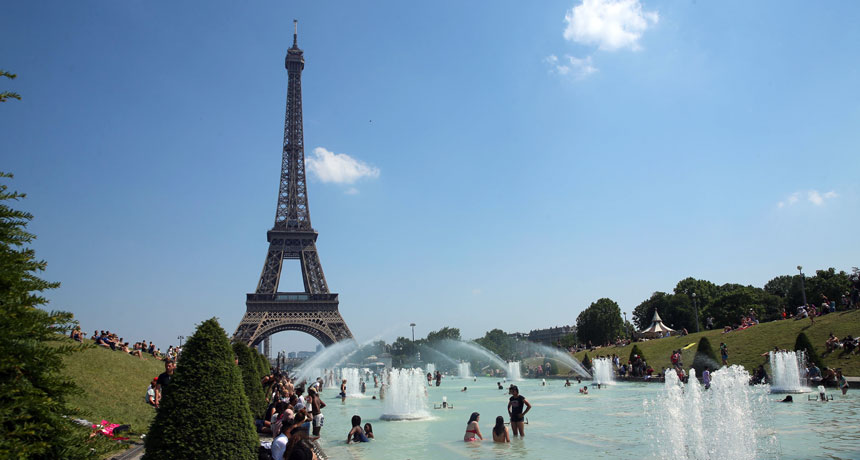Human Induced factors, climate change made it five times more intense that Europe would experience a powerful heat wave like the one that baked the region in June, according to the International team of scientists.
The findings released on July 2 by the World Weather Attribution Network, deal with the tricky question of how the heat wave might have been linked to global warming. The extreme weather conditions broke heat records in different parts of Germany, Switzerland, Italy, Spain, the Netherlands, and the Czech Republic, and set an all-time high for France of 45.9° Celsius (114.6° Fahrenheit).
Heat waves aren’t just linked with high temperatures. The events are also defined by where, when and for how long they occur. To study heat wave patterns and determine if climate change is the main culprit in June event, scientists observed three-day averages of the average daily temperatures for France during the heat wave and compared it to previous temperature observations as well as to climate simulation systems to examine the role of climate change.
According to find, the current climate anomalies make the June heat wave in France up to 100 times more likely to occur than it would have been in 1901. It has not been cleared yet that exactly how much climate change played it’s ruled to this increased risk. But the researchers are worried and they are very confident that climate change increased the probability by at least a multiple of five. The findings are yet to be waiting for peer review.
According to report data, the Intensity of heat waves has also increased. 100 years ago, the three-day average temperature during a heat wave would have been about 4 degrees Celsius cooler.
Heat waves early in summers before schools holidays can reveal that people are less likely to escape the heat wave and are more vulnerable to the high temperatures during the mid-summer period.

